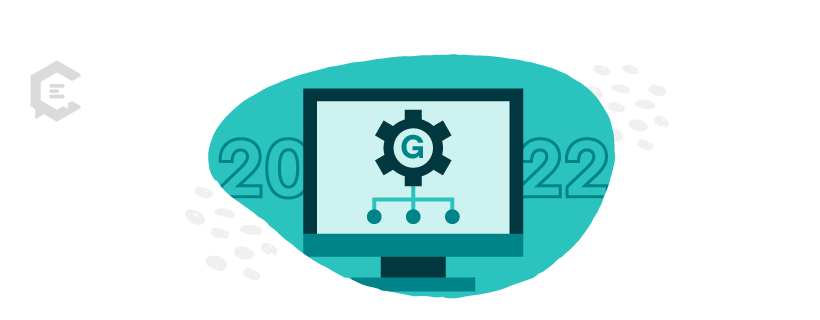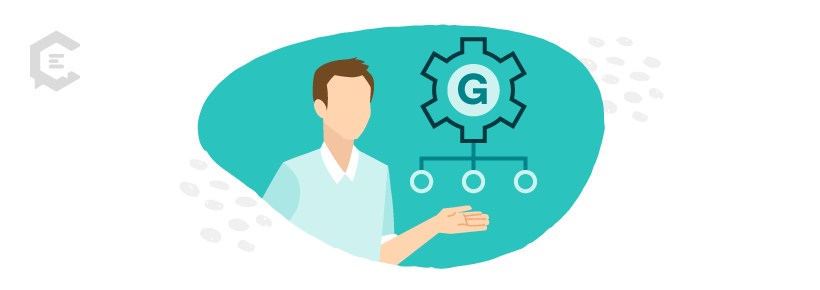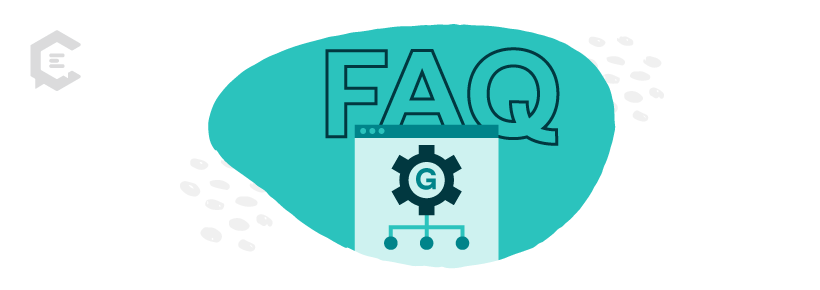Every new Google algorithm update is meant to help searchers find useful information faster, better, and more reliably.
The same rings true for the latest “helpful content update,” which is a part of Google’s ongoing effort to bring more “content by people, for people” into search engine results pages (SERPs).
This post covers everything creators need to know about the helpful content update; including what other SEO experts think.
What is the latest Google algorithm update?
The helpful content Google search algorithm update improves the rankings of content that satisfies and meets the expectations of users. It rewards authentic content written by subject experts. While it frowns upon content that appears to be created specifically for search engines.
The update started rolling out on August 25, 2022. According to Google, it may take up to two weeks for the rollout to complete.
While the helpful content update is meant to penalize content created for search engines, it doesn’t cancel existing SEO best practices, such as the Google E-A-T guidelines.
Used together, the helpful content update and E-A-T guidelines allow website owners to deliver people-first content and propel their search engine rankings.
What is considered “people-first content”?
People-first content is content that prioritizes the target audience’s needs. Here are the characteristics of people-first content:
- Information from first-hand knowledge. Your content should contain information based on your personal expertise, experience, and knowledge—not repackaged information from other websites.
- Consistent with your website goals. People-first content is created at an angle that supports your website’s core goals—not influenced by other thought leaders or whatever’s trending.
- Comprehensive and actionable. After reading your content, users should feel confident and ready to achieve their goals.
- Written for users. As opposed to being written to sell products or services, people-first content must provide value to readers without having to purchase anything.
People-first content must also observe Google’s guidelines for product reviews and core content quality updates (whenever they apply). For example, if the content is a product review, it must be honest, unbiased, and written from an actual user’s point of view.08/core-update
Describe your first-hand experience with the product rather than focusing on keywords or features that users can read on the product’s website.
What do leading consultants say about the Google helpful content update?
Check out what leading SEO consultants have to say about the latest Google algorithm changes:
1. Kristine Schachinger: “Get help immediately outside your company”
“When you are hit by a rollout or a new algorithm, which this is, get help immediately outside your company from people who recover websites all the time because they know it moves the lever and can get you the answer faster.”
— Kristine Schachinger, SEO and Digital Marketing Consultant
As a forensic SEO consultant, Kristine Schachinger conducted countless SEO audits. She specializes in highlighting issues, from duplicate content to penalization due to new algorithm changes.
If your website is hit and your internal SEO team doesn’t have a penalty recovery specialist, source one from the gig economy. Don’t wait for a year and get the guesswork out of the way to recover lost rankings ASAP.
2. Pedro Dias: “Avoid jumping to analysis before the rollout is complete”
“Quick reminder: As Google’s Helpful Content Update is rolling out, avoid:- Jumping to analysis before the rollout is complete & without a clear trend;- Drawing conclusion too early and/or based on your first assumptions;- Assuming observations will be the same for other sites.”
— Pedro Dias, SEO Consultant and Head of SEO at Autoviaon
SEO consultant Pedro Dias advises against acting too early to avoid overreacting to the helpful content update.
Avoid knee-jerk reactions and wait for the rollout to finish before making adjustments to your SEO. Wait for a clear trend to emerge, analyze the pages that were hit or rewarded, and plan your strategy accordingly.
3. Natalie Arney: “Quality, use, and intent are key”
“Quality, use, and intent are KEY when creating content, and Google will be looking at how helpful content pieces are to users. Providing value and usefulness, alongside the content being of good quality (with little automation) is what Google will be looking for with this new update, and is what you should be aiming for with the content on your site.”
— Natalie Arney, Freelance SEO Consultant
With years of experience as an SEO analyst and consultant, Natalie Arney understands that surviving search algorithm updates is all about content quality.
As with most Google algorithm updates, great and useful content pieces are rewarded while formulaic and over-optimized pages are pushed down. This time, minimizing automation and putting the audience’s needs first is more important than ever.
4. Kevin Indig: “Look at potential user intent shifts”
“DO look at potential user intent shifts. Many core algo updates lead to a better/different understanding of what users want to achieve with a search. Look at who ranks better when you lose ranks (and vice versa). Search for patterns across keywords that changed in rank.”
— Kevin Indig, SEO Director at Shopify
Shopify SEO Director, Kevin Indig, echoes the importance of creating content for user intent.
Use the new helpful content update to evaluate if your understanding of user intent aligns with what searchers actually want. For example, if your target keyword is “how to succeed at SEO,” look for the top results after the rollout.
Google’s first page will reveal if users really want to see product listicles, tutorials, agency recommendations, or a mix of everything.
5. Tom Crewe: “Authorship is already important”
“Authorship is already important, but I would imagine this update may put even more emphasis on content written by genuine experts. Build out your Author schema and prove why you/your authors have expertise in a particular area.”
— Tom Crewe, Freelance SEO Consultant
Google indicated that demonstrating first-hand expertise is key to thriving through the helpful content update. According to Tom Crewe, it’s a reminder to establish the credibility of your content authors.
Regardless if you have a team of subject matter experts or writing for yourself as a thought leader, you need to prove it to readers as well as bots. Build a detailed author page and use the Author schema to help search engine crawlers understand who you are.
Tips on Writing People-First Content
Here are tips for writing people-first content and getting higher rankings with the helpful content update:
- Remember to address reader intent. Align content creation with your target audience’s intent to maximize essential SEO metrics, like dwell time and user engagement. Write a promotional piece, step-by-step guide, listicle, or general article depending on what your target audience wants to accomplish.
- Keep content meaty but lean. Google mentioned that targeting a specific word count is indicative of “creating content for search engines first.” Avoid this by focusing on writing relevant and useful information while cutting out the fluff.
- Avoid using too much automation. Don’t make the suggestions of AI writing tools your guiding compass for how to write your articles. Put human readers top of mind and your main focus. Think about their experience. If you use on-page optimization tools for keyword placements and outline generation, use them less and focus on your target audience’s goals.
- Write for humans. The helpful content update is Google’s way of telling marketers and website owners to end their “SEO-first” approach to content development. To get higher rankings, write for people first by structuring content outlines logically. And adding sections that can help with your readers’ goals—not because you need to inject more keywords.
- Use Author schema and other markups. Use schema markups to communicate the authority of your business or personal brand with search engines. Schema markups also enable you to rank for Google featured snippets.
- Write comprehensive content. Write content that teaches readers everything they need to know about the topic. Improve content with missing or unclear information so readers don’t have to look elsewhere.
Google Helpful Content Update: FAQs
1. What is a Google algorithm update?
A Google algorithm update implements changes in how the search engine indexes, ranks, and de-ranks web pages. Since algorithm updates are platform-wide, huge shifts in website rankings are observed weeks or months after rollouts.
2. What webmasters should know about Google core updates?
Google core updates are significant changes to the search engine’s ranking algorithm. Core updates happen multiple times per year to ensure users get the best experience possible.
3. What is the E-A-T principle in SEO?
E-A-T stands for Expertise, Authoritativeness, and Trustworthiness. The E-A-T guidelines help Google’s search quality raters determine the value of content and the platform’s effectiveness in ranking relevant and authoritative content.
Bolster your SEO with people-first content today
In the age of people-first content, you need real (human) SEO experts — not AI writing assistants or SEO “professionals” who use content mills or spinners. Beef up your SEO strategy with people-first content today.
Use the form below to get in touch with a content strategist. Let’s give your audience what they want with the help of our battle-tested, highly skilled content producers.






